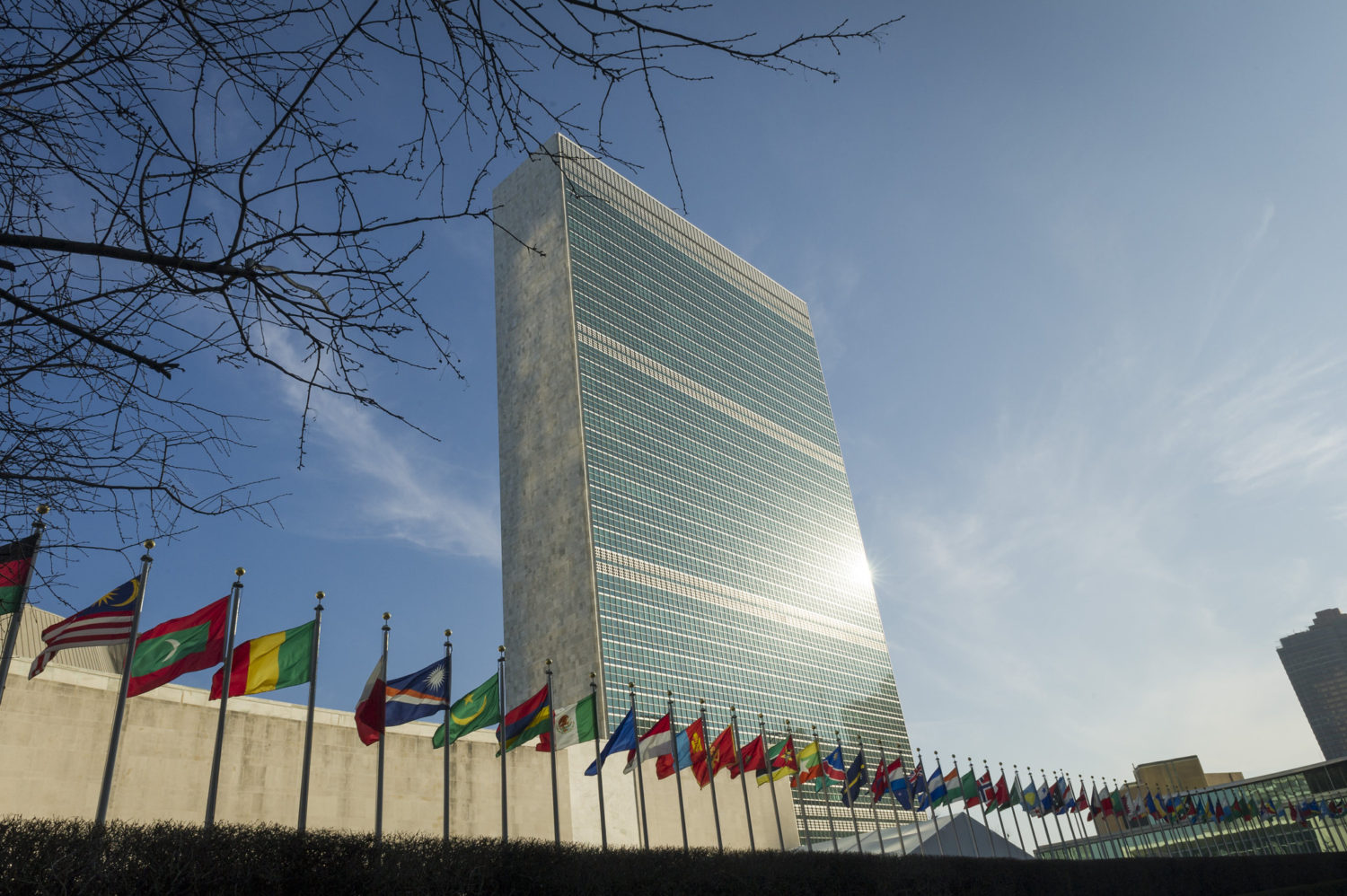Thinking global
Globalisation is undermining the institutions that social democracy depends on. Labour must look outwards to build a better future here and abroad, as Josephine Harmon explains
Since 2015, British politics has become bogged down in the fight between nationalism and internationalism. In the struggle between these competing ideologies, we have seen them take their most unflattering forms: crass, reactionary chauvinism on the one hand, and indifferent, winner-takes-all globalisation on the other. What both sides miss is that their talking points are increasingly moot; it is no longer an option for Britain to close itself off from the outside world, nor to ignore intense domestic dissatisfaction with the worst ravages of international capitalism. While the old debates rage on in the background, the unrestrained nature of the global market and the technological advancements of the fourth industrial revolution are exerting political pressures on the national body politic that require both domestic and global solutions.
The grim reality is that the consumption patterns, material waste, labour exploitation and ruthless competition of the global marketplace are brutalising the citizens of social democracies, particularly those who are young and lacking in formal qualifications. Through no fault of their own, workers in advanced economies are finding themselves outcompeted and outpaced. In the modern world, it is much easier for capital to find new homes, make strategic choices about where it locates itself, play the market and price-compare which countries offer more competitive rates and discounts.
Ironically enough, precisely because the tools of national government are increasingly incapable of dealing with global problems, our politics has become inward-looking and reactionary. Take Blue Labour, which espouses a combination of conservative cultural politics and socialist economics – the same combination that supposedly attracted ‘Red Wall’ voters to vote for the Tories in 2019. However electorally astute this strategy might prove to be – notwithstanding its tacit, rather disappointing neglect of progressivism – it ignores the fundamental problem of our time: the growing gulf between global capital and localised labour.
So too, despite what ‘Lexiteers’ might have you believe, did Brexit. As a nation, we are at the receiving end of global production and consumption norms, and so it was foolish to imagine that pulling up the drawbridge could achieve better economic, social or environmental outcomes. The global economy is a ride we cannot get off. Crucially, nor can anyone else: no single country can enact change. As a result, the shocking economic inequality that globalisation and new technology has made possible can only be resolved through international collaboration. That requires Labour to look closely at global institutions.
Social democracy believes that the incentives and disincentives we provide the market through government institutions can be the means through which we create societies that include everyone – societies shaped by citizens, for citizens. At a national level, this project, at various times in history, has proved remarkably successful. Yet our global institutions do not currently lend themselves to this vision. They are responsible for the lack of rigorous taxation of the most successful companies globally, rising Gini coefficients across the world, and inferior legal frameworks regulating the value of labour, preventing monopolies, holding corrupt corporations to account and protecting human rights and environmental integrity.
To tackle these issues will be a much harder job than marshalling the democratic tools we have used to manage our national economies. It will require socialists to organise with our like-minded partners across Europe and the world. This must go beyond informal, soft connections, rich though these are. Creating official forums for serious debate and engagement, and extending the existing ones, will be an important precursor to platform the voice of ordinary citizens and achieve greater equality. A good blueprint would be Thomas Piketty’s model for thinking about tax, accountability and law beyond the nation state, which he puts forward in Capital in the Twenty-First Century, as well as his proposals for reforming the EU and increasing cross-European debt-management.
Listening to experts like Piketty will be crucial. There will be a scramble for global institutional influence in coming years, with China and India perhaps cultivating new global institutions in competition with the IMF, World Bank and UN. A clear vision will be important. This will, of course, include doing as much as we can at home – a starting point would be closing tax loopholes, as Andrew Percy, director of the Social Prosperity Network at the UCL Institute for Global Prosperity, explained in my recent conversation with him about universal basic services, and as he outlines in his National Contributions report with Anna Coote. In addition, we need to re-engage with Europe, at the very least engaging with the S&D coalition (Progressive Alliance of Socialists and Democrats, Party of European Socialists (PES)) in the European Parliament, and ideally consider a database of the type Thomas Piketty recommends to give teeth to global regulatory bodies and avoid a race to the bottom through falling corporate taxes. For too long, countries have been played off one another, and relied on cutting tax to attract business; a sensible floor for corporation tax would allow both workers and consumers to find a stable footing in the market.
It is unfortunate that the European Union – which is the closest to an ideal political and economic setup to address this issue globally – has slipped from our grasp in the short term; it is likely that we will have to re-embrace it in some form to tackle these pressing issues. What is clear is that the world is changing too fast for us to sit on our hands. A cultural shift in Labour, in which we re-embrace the importance of engaging beyond the state’s now-modest levers of power, will be important. We should do as much as we can at home, while recognising that truly addressing this problem will mean organising internationally.
Globalisation has brought opportunities and will only bring more. But it is undermining the institutions that social democracy depends on. To protect liberal social democratic principles we need to think about institutional mechanisms for democracy, accountability and negotiations between capital and labour beyond the nation state. The end goal, as ambitious as it is, must be to democratise global capital. That means reincorporating it under the institutional arrangements and mandates of our democracies, making global capital responsive to the needs and will of the people, and giving citizens across the world the right to shape the system in which they live. For any of that to happen, Labour and its counter[1]parts must think about how to organise globally. Voicing these ambitions together with a wider social democratic vision for Britain might not only win support electorally, as a more salient alternative to the Conservatives’ argument against international engagement, but lay the foundations for a more harmonious, fairer world.
Image credit: UN Photo/Rick Bajornas via Flickr
Image credit (portrait): Steve Cadman, CC BY-SA 2.0 via Wikimedia Commons

